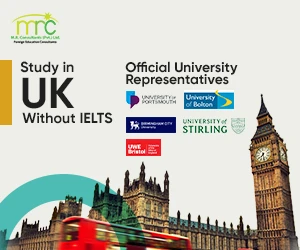
For all students who wanted to attend famous colleges throughout the world, studying abroad may be an exciting and fulfilling experience for them. However, it is crucial for students to put their health and wellbeing first while living abroad. Students must follow some major precautions regarding to their health before leaving.
Remember that taking care of your health while studying abroad is essential for making the most of your educational experience and ensuring your well-being throughout your stay. Be proactive, seek assistance when needed, and stay informed about healthcare resources in your host country. Study abroad is one of the most helpful platforms which will assist perfectly to every student who are planning to visit abroad to pursue their studies.
10 Things Student Must Consider For Their Health While Studying Aboard
The following are some crucial factors that students should take into account for their health when studying abroad
Health Insurance
Make sure you have sufficient health insurance that is recognized in the host nation. Learn the specifics of the coverage, such as what medical treatments are covered and how to receive healthcare. You can take complete guide from Study abroad website.
Vaccinations
Check if there are any required or recommended vaccinations for the country, you're studying in. Keep your immunization records up-to-date to prevent illnesses. The proof of vaccination must have been obtained within the 12 months prior to your departure. Most universities in abroad are welcoming deserving international students to study in their country but some required Vaccination as mandatory to gain entry.
Appropriate Medical Records
Carry a copy of your medical records, including any allergies, existing conditions, and vaccinations, in case you need medical treatment abroad. Consider digital copies as well your medical history review, physical examination, chest X-ray and blood tests for syphilis.
Prescription of Medications
If you are on any prescribed medications, be sure you have a sufficient supply before you travel to study for abroad and are familiar with how to get replacements or refills at abroad. For assistance, look up nearby pharmacies and medical professionals before leaving your country.
Healthcare Facilities
Make sure to Familiarize yourself with the healthcare facilities available in your host city. Know the location of hospitals, clinics, and pharmacies in advance in case you need any kind of medical attention immediately. Keep up to date with any health advisories or alerts issued by your home country's embassy or consulate in the host country.
Dietary Considerations
If you have any diet restriction, make sure to bring a dietary restriction / allergy card. Be mindful of dietary differences and allergies. If you have dietary restrictions or allergies, it is also necessary to bring your allergy medication with you as well before leaving towards your host country, learn how to communicate in the local language where you are going and research places that can accommodate your needs.
Emergency Contacts
Keep a list of emergency contacts both in your home country and your host country. Share this information with family and friends. Be aware of your surroundings and take safety precautions, especially when traveling or going out at night. Know the emergency numbers and local safety guidelines.
Mental and Physical Health Support:
Studying abroad can be mentally challenging. Research mental health services available to students in your host country and know how to seek help if needed. Maintain a regular exercise routine to stay physically and mentally active. Many universities abroad offer gym facilities, and outdoor activities can also help you stay fit.
Language Barriers
If you are studying in a country where you don't speak the local language fluently, it can be difficult for you to attain immediate medical attention from them due to language barrier. It will be a good idea to learn some basic medical terms and phrases to help them to communicate your needs to healthcare professionals. Students must consider to learn basic medical terms for their ease and comfort before leaving their country.
Nutrition Diet and Good Sleep
Pay attention to your diet and nutrition. Try to maintain a balanced diet with a variety of foods to ensure you get essential nutrients. Explore local cuisine, but also make an effort to maintain a balanced and nutritious diet. Be mindful of portion sizes and consider cooking for yourself if you have access to a kitchen. Adequate sleep is crucial for your overall well-being and academic performance. Establish a consistent sleep schedule and create a comfortable sleep environment.



.gif)


 764
764
 0
0


























